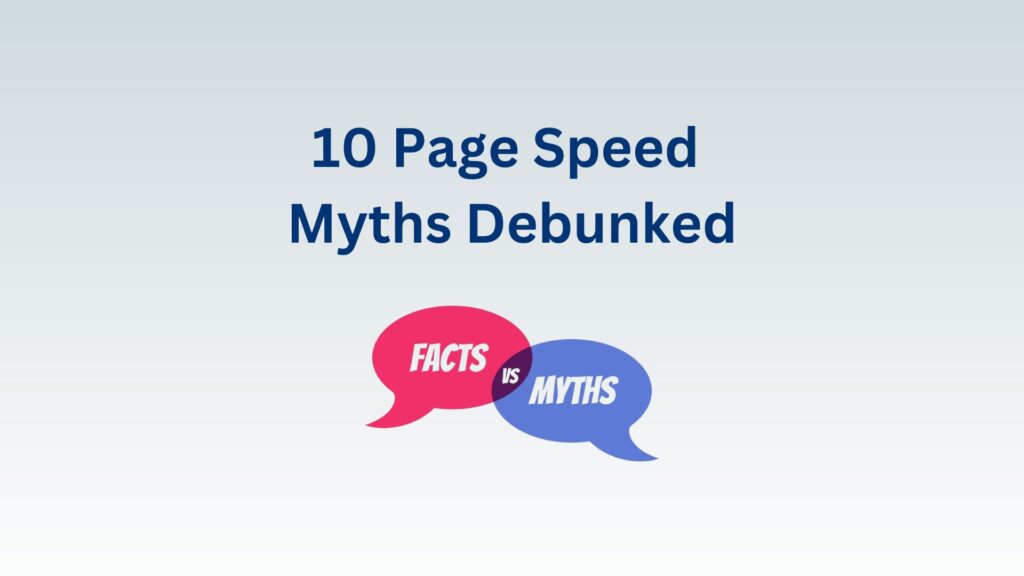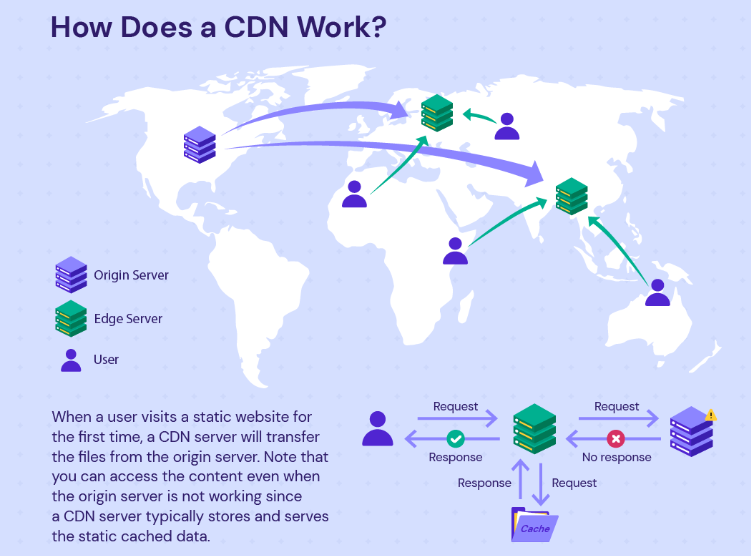10 Myths About Page Speed Debunked

Very few factors hold as much sway over user experience and overall performance as page speed. It’s the digital equivalent of a first impression – crucial for retaining visitors, enhancing engagement, and improving conversion rates. However, despite its paramount importance, misconceptions about page speed persist, leading to misguided strategies and missed opportunities for optimization. In this comprehensive guide, we’ll debunk 10 prevalent myths surrounding page speed to empower developers and businesses with accurate insights and actionable strategies.
Myth 1: Page Speed Doesn’t Impact User Experience Significantly
Reality: Page speed is a cornerstone of user experience. Numerous studies have shown that even small delays in page loading times can drastically increase bounce rates and deter users from returning. Research by Google indicates that if a page takes more than three seconds to load, over half of users will abandon it. Therefore, optimising page speed is essential for delivering a seamless and satisfying browsing experience.

Myth 2: Only Large Websites Need to Worry About Page Speed
Reality: Page speed affects websites of all sizes. While it’s true that larger websites with extensive content and functionalities may face more significant challenges, smaller sites are not exempt from the impact of slow loading times. Every website, regardless of its scale, should prioritise optimising page speed to enhance user satisfaction and achieve better search engine rankings.
Myth 3: Page Speed Is Solely Determined by Hosting Provider
Reality: While the quality of hosting plays a vital role in page speed, it’s only one piece of the puzzle. Factors such as image optimisation, code efficiency, browser caching, and content delivery networks (CDNs) also significantly influence loading times. Effective page speed optimisation requires a holistic approach that addresses various elements contributing to performance.

Myth 4: Page Speed Optimization Is a One-Time Effort
Reality: Page speed optimisation is an ongoing process. As websites evolve, new content is added, and technologies advance, optimising page speed becomes a continuous endeavour. Regular monitoring, testing, and refinement are necessary to ensure that a website maintains optimal performance levels over time.
Myth 5: Mobile Page Speed Is Less Important Than Desktop
Reality: With the proliferation of mobile devices, mobile page speed is just as critical – if not more so – than desktop page speed. Mobile users expect fast and responsive experiences, and search engines prioritise mobile-friendly websites in their rankings. Ignoring mobile page speed can lead to significant losses in traffic and engagement.

Myth 6: Page Speed Is Only Important for SEO
Reality: While page speed is indeed a crucial factor in search engine optimisation (SEO), its significance extends far beyond rankings. Faster loading times contribute to higher user satisfaction, lower bounce rates, increased conversions, and improved overall performance metrics. Prioritising page speed benefits both user experience and SEO efforts.
Myth 7: Content Rich Websites Can’t Achieve Fast Page Speed
Reality: While content-rich websites may face additional challenges in optimising page speed due to the volume of data they present, it’s entirely possible to achieve fast loading times through strategic optimisation techniques. Employing tactics such as lazy loading, minification of CSS and JavaScript, and asynchronous loading of resources can significantly enhance performance without compromising content richness.

Myth 8: Visitors Will Wait for Pages to Load If Content Is Compelling
Reality: In today’s fast-paced digital landscape, users have little patience for slow-loading websites, regardless of how compelling the content may be. Research shows that even a one-second delay in page load time can result in a significant drop in conversion rates. Compelling content can capture users’ interest, but it’s fast loading times that keep them engaged.
Myth 9: Page Speed Optimisation Is Too Technical for Non-Developers
Reality: While some aspects of page speed optimization may require technical expertise, many optimization techniques are accessible to non-developers. Content management systems (CMS) often offer plugins and tools for optimising images, caching, and minifying resources. Additionally, online resources and tutorials provide guidance for implementing basic optimisation strategies without advanced technical knowledge.
Myth 10: Achieving Perfect Page Speed Is Impossible
Reality: While achieving perfection in page speed may be elusive, significant improvements are attainable through diligent optimisation efforts. Even modest enhancements in loading times can yield substantial benefits in user experience and performance metrics. By adopting a proactive approach to optimization and continually refining their strategies, website owners can make meaningful progress toward maximising page speed.

In conclusion, dispelling these myths is crucial for understanding the importance of page speed optimization in modern website development. By recognising the significance of fast loading times, adopting a holistic approach to optimisation, and leveraging available tools and techniques, developers and businesses can create faster, more responsive websites that deliver superior user experiences and drive better results.






